This work is a valuable contribution to the study of the British historical writings on India during the later 19th century. Under the Crown, the British historians made several efforts to solve certain problems of the past, they had sowed the poisonous seeds of many new myths and biased assumptions, which are still haunting the Indian mind. Being the bureaucrats as well as the historians, they acted the dual role of performances and of precepts, of hectic actions and heroic interpretations. They dug the past and dreamt the future in their own liking. They used history as the handmaid of British authority and as an end in order to justify their performances and perceptions. The book critically examines the various prevailing assumptions and perceptions of the British historians. It highlights the issues and problems like the nature and character of the British conquest in India; the justification of British dominion in India; the concept of India as a nation in process; the problem of the Aryan race and Aryan invasion theory; conflicts on the basis of caste, religion and race; the divergent theme of the Hindu phobia and the problem of the propagation of Christianity. It also deals with the various interpretations of the Great event of 1857. In this volume a close study of the historical writings of Sir William Wilson Hunter, Sir John William Kaye, George Bruce Malleson, James Talboys Wheeler, Sir Alfred Comyn Lyall and Max Arthur Macauliffe have been attempted. The present work India Distorted provides a key to the study of the foundations of British historical writings on India during the early 19th century. It analyses the trends, the attitudes, the assumptions and the intensions of the British historians on Indian history, culture and institutions. The book critically examines the various observations made by the British historians and the manner in which the facts got distorted. The study also highlights the various prevailing ideological trends in England such as Utilitarianism, Evangelicalism, Romanticism and the British Orientalism. The personal ambitions have also been discussed. A close study of the influence and the impact of the individuals like Charles Grant and William Wilberforce, Jeremy Bentham and James Mill, Lord Macaulay, Mountstuart Elphinstone, John Malcolm colonel Tod, James Grant Duff and J.D. Cunningham have also been attempted. The book will be of immense interest to the general readers as well as to the scholars of history and literature. It will help to provide an understanding of the various problems of Indian History. This work is a valuable contribution to the study of the British historical writings on India during the first half of the 20th century. In fact, the period is of utmost crucial significance in the history of India as well as of Great Britain. It completely transformed the face of both the countries. It witnessed the gradual rise and development of Indian National Movement which coupled with other factors resulted in the collapse of the British empire. The British officials mentioned the collapse of the British authority in India as the ‘transfer of power,’ and Indians termed it as the dawn of independence or partition of the country. The period witnesses the change from compromise to contempt, faith to failure and may be regarded as the last ditched attempt to preserve the British empire in India. The period also signifies the gradual increase of the political consciousness and mass awakening in India in varying ways at various levels. while one fails, the other succeeds, due to various national and international factors. The British historians supported the official view, guided their line of action, criticized the Indian nationalism in the choicest language. The present book critically analyses the historical writings of some of the most popular and representative British historians of the period. These include V.A. smith, Valentine Chirol, H.H. Dodwell, Verney Lovett, Edward Thompson and P.E. Roberts. It is a study of the individual historians as well as their common trends which bind them and an attempt to offer fresh interpretation of the writings of the British historians. This book forms the third and final volume on the series on India Distorted.
India Distorted: A Study of British Historians on India (In 3 Volumes)
Out of stock
Out of stock
Free & Quick Delivery Worldwide
reviews
Bibliographic information
Title
India Distorted: A Study of British Historians on India (In 3 Volumes)
Author
Edition
1st. ed.
Publisher
ISBN
8175330805
Length
vi+153p., viii+155-359p., viii+361-588p., References; Appedix; Glossasry; Bibliography; Index; 23cm.
Subjects

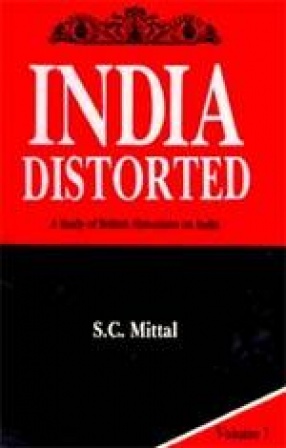
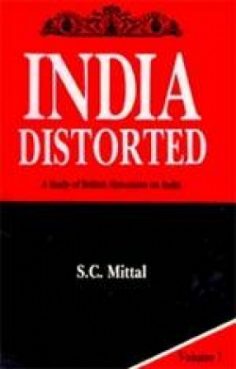
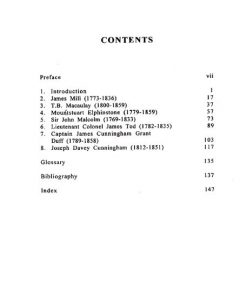
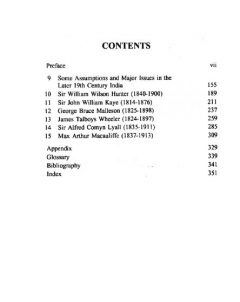
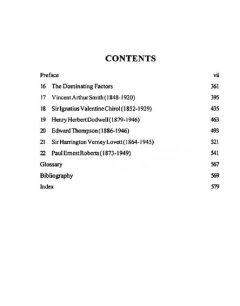

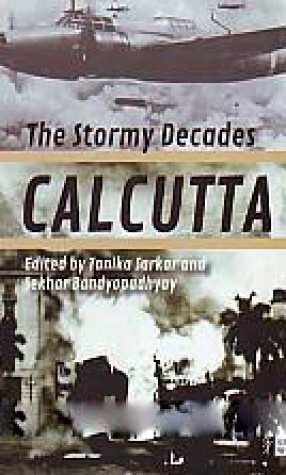
There are no reviews yet.